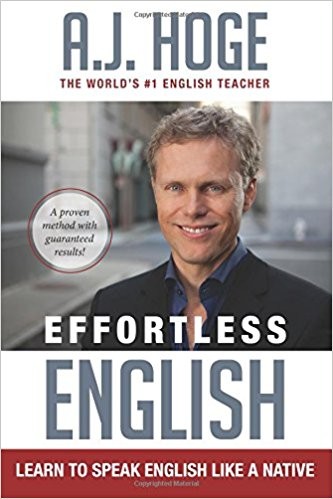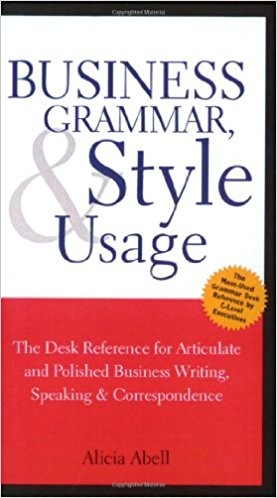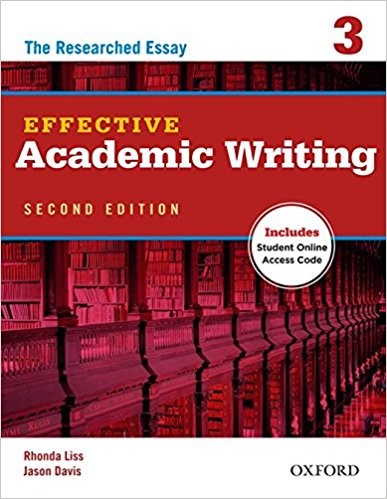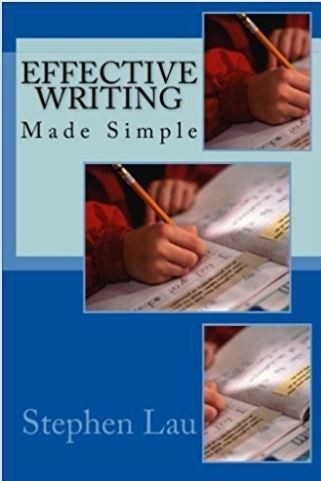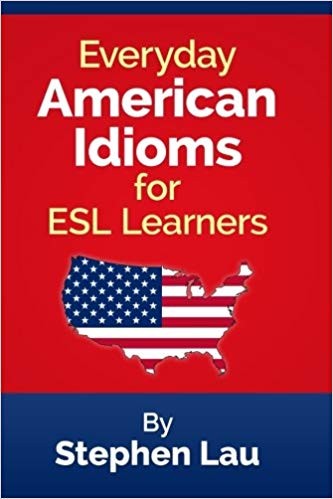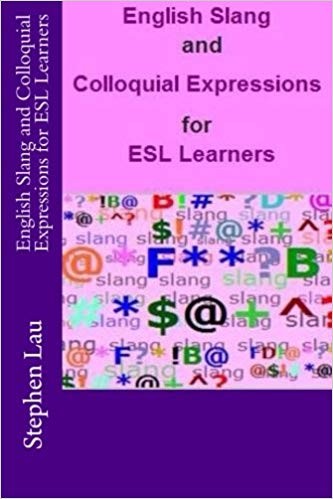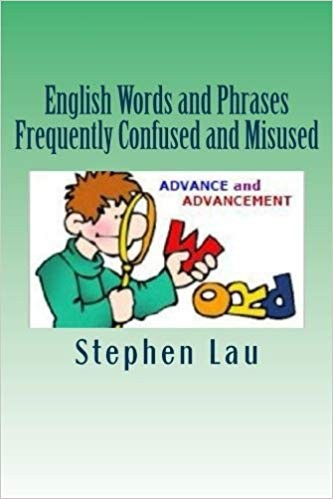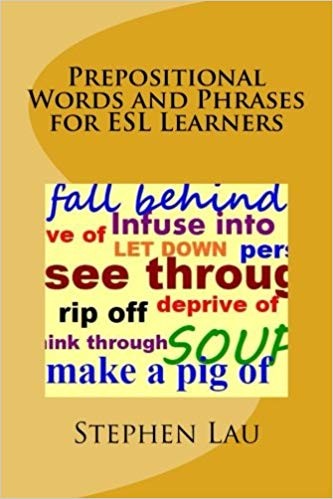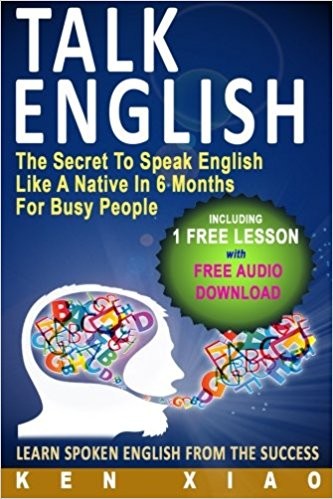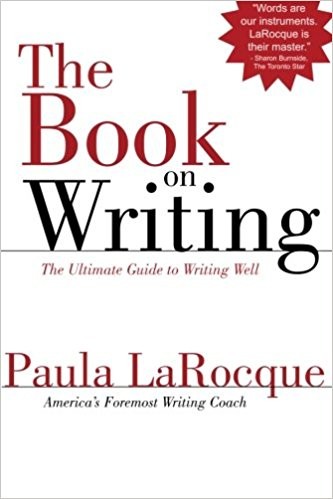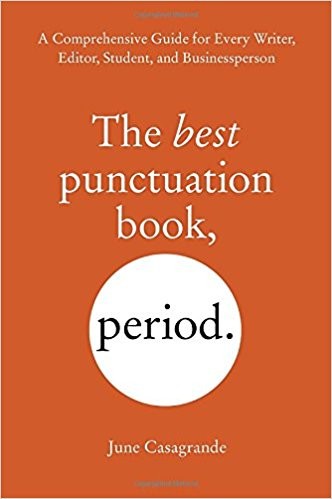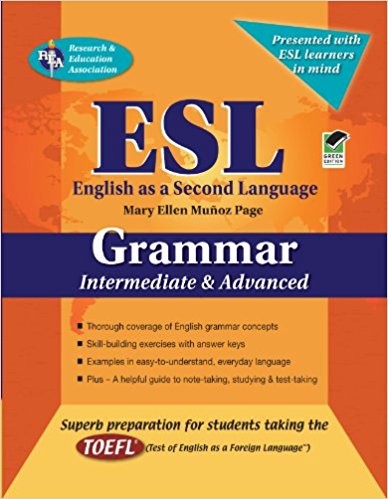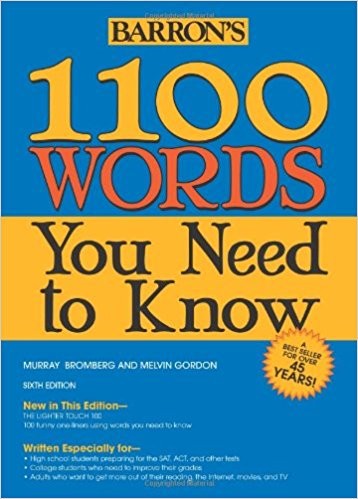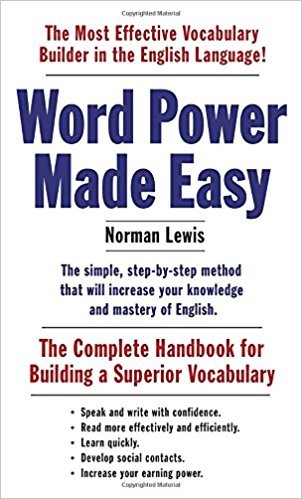
BETTER ENGLISH
For You
Stephen Lau
For You
Stephen Lau


LEARNING SOME CONFUSING WORDS
In English there are many words that look similar but they are totally different in meanings
Click here to get your book: English Words and Phrases Frequently Confused and Misused.
In English there are many words that look similar but they are totally different in meanings
Click here to get your book: English Words and Phrases Frequently Confused and Misused.

SELECTED
FACEBOOK PAGE
FACEBOOK PAGE
WHAT IS EFFECTIVE WRITING?
Effective writing is made up of effective sentences that must show some of the following characteristics:
Accuracy
An effective sentence must be grammatically correct. This includes observing the rules of grammar with respect to using the right parts of speech, agreement between subjects and verbs, between pronouns and antecedents, and correct spelling.
Emphasis
The arrangement of words in a sentence can determine which idea receives the most emphasis. To stress a word, place it at the end of a sentence or at the beginning of a sentence. A word or phrase receives the least emphasis when it is placed in the middle of a sentence.
e.g. For many families, foreclosure is the only option. (least emphatic)
e.g. Foreclosure, for many families, is the only option. (emphatic)
e.g. There is only one option for many families: foreclosure. (emphatic)
The use of inversion (reversing the normal order of words in a sentence) is another way of emphasizing an idea.
e.g. Parents who give their children a good moral education are wise. (normal order)
e.g. Wise are the parents who give their children a good moral education. (inversion)
e.g. Those who live without worries of daily problems are happy. (normal order)
e.g. Happy are those who live without worries of daily problems. (inversion)
Remember, not all sentences need special emphasis; effective writing generally contains a mix of some sentences in natural order and others re-arranged for special effects.
Stephen Lau
Copyright© by Stephen Lau
Effective writing is made up of effective sentences that must show some of the following characteristics:
Accuracy
An effective sentence must be grammatically correct. This includes observing the rules of grammar with respect to using the right parts of speech, agreement between subjects and verbs, between pronouns and antecedents, and correct spelling.
Emphasis
The arrangement of words in a sentence can determine which idea receives the most emphasis. To stress a word, place it at the end of a sentence or at the beginning of a sentence. A word or phrase receives the least emphasis when it is placed in the middle of a sentence.
e.g. For many families, foreclosure is the only option. (least emphatic)
e.g. Foreclosure, for many families, is the only option. (emphatic)
e.g. There is only one option for many families: foreclosure. (emphatic)
The use of inversion (reversing the normal order of words in a sentence) is another way of emphasizing an idea.
e.g. Parents who give their children a good moral education are wise. (normal order)
e.g. Wise are the parents who give their children a good moral education. (inversion)
e.g. Those who live without worries of daily problems are happy. (normal order)
e.g. Happy are those who live without worries of daily problems. (inversion)
Remember, not all sentences need special emphasis; effective writing generally contains a mix of some sentences in natural order and others re-arranged for special effects.
Stephen Lau
Copyright© by Stephen Lau
PREPOSITIONAL PHRASES
A prepositional phrase is a combination of a verb with a preposition. Such a combination may give different meanings to the same verb with different prepositions. For example, the verb ďargueĒ may result in different meanings with different prepositions:
Argue about: dispute or quarrel with someone over.
e.g. They often argue about racial injustice over the dinner table.
Argue against: make a case against someone or something.
e.g. The police discovered new evidence that argued against the criminal charge.
Argue back: answer back.
e.g. I wish he would not argue back so much.
Argue down: defeat someone in a debate.
e.g. He tries to argue down everyone who has opposite views.
Argue for: make a case for someone.
e.g. My lawyer will argue for me in court.
Argue into: convince someone to do something.
e.g. I could not argue myself into helping you in this project.
Argue with: challenge someone or something.
e.g. I wonít argue with what you do; after all, it is your choice.
Therefore, learn more prepositional phrases and find out how they are different in meaning with different prepositions.
TALK
Talk back: answer impolitely.
e.g. It's rude to talk back to your parents like that.
Talk over: discuss.
e.g. We'll talk over the matter before we see your parents.
BACK
Back down: retreat from a position in an argument.
e.g. Knowing that he did not have a valid point, he backed down.
Back out: desert; fail to keep a promise.
e.g. You said you would help us, but you backed out.
Back out of: fail to keep a promise.
e.g. We cannot back out of the contract; we are legally obligated to do what we are supposed to do.
Back up: support
e.g. Are you going to back me up if I decide to go ahead with the project?
TOUCH
Touch on: mention briefly.
e.g. The professor barely touched on the subject of Civil War.
Touch up: repair.
e.g. Can you touch up the scratches on the door?
APPEAL
Appeal against: ask a court to cancel something.
e.g. The lawyer appealed against the courtís decision.
Appeal for: demand as a right.
e.g. I think we should appeal for justice.
e.g. They are appealing for our help.
Appeal to: attract or please someone.
e.g. The proposal appealed to many of us.
e.g. Her personality appeals to everybody around her.
e.g. Does this food appeal to your taste?
PREPOSITIONAL WORDS AND PHRASES
Stephen Lau
Copyright© by Stephen Lau
**************************************
Learning a language takes time and effort, especially if it is not your first language. Even if it is your mother tongue, you still need time and effort to master it because almost every language has its own slang and colloquial expressions, and the English language is no exception.
Language is forever changing. What is currently acceptable or popular may be replaced by something else in years to come, and the use of slang is a strong testament to that. Slang is just an alternative way of saying something. It is sometimes hard to identify what is slang and what is not. Slang and colloquial expressions are often acceptable in informal writing because they are used in communication in movies, newspapers, radio, television, and other mass media The more you learn, the more you will know when to use or not to use them in your formal writing. No matter what, knowing these common everyday expressions is a plus for all ESL learners.
Also, read my other book on American Idioms.
Stephen Lau
**************************************
THE USE OF TENSES
To write well, you need to know how to use English tenses correctly. Tenses are difficult to many because in many languages tenses are not used to express "time" or the "relationship of sequence"; instead, adverbs, such as "yesterday", "tomorrow", "soon" etc. are used.
To learn how to use English tenses correctly, you must have a perception of the "time" element.
Let's take a look at present tense, present continuous tense, present perfect tense, past tense, and past perfect tense with the following examples:
PAST<----------------------------------------------------->PRESENT
e.g. I am a U.S. citizen. (present tense)
e.g. I haven been a U.S. citizen for many years. (present perfect tense-I was and still am)
e.g. I live in the United States. (present tense-a fact)
e.g. I am living in the United States. (present continuous tense-sometimes I live in other places, but right now I am living in the United States)
e.g. I lived in the United States. (past tense-a fact in the past)
e.g. I had lived in the United States for many years, but now I no longer do. (past perfect tense-an action that took place for some time in the past)
Can you now tell the differences between the following sentences?
e.g. I am still a student in this community college.
e.g. I was a student in this community college last year.
e.g. I have been a student in this community college since 2016.
e.g. I had been a student in this community college between 2010 and 2013.
Hopefully, the above examples have demonstrated how you should use some of the English tenses correctly.
Read my book Effective Writing Made Simple.
Stephen Lau
Copyright© by Stephen Lau
**************************************
HOW TO WRITE EFFECTIVELY
Many people have to write, yet they donít really like to write; some even hate it! Despite their aversion to writing, they may have to write letters, memos, proposals, reports, or e-mails in their work. Whether they like it or not, writing may be a part of their daily task. Are you one of them? If yes, why not make a virtue out of necessity, and learn the basic skill of effective writing?
Writing is about the written word. Not only is the written word part and parcel of daily life, but also has continued to hold its place in the contemporary world-just as Byron, the famous English poet, once said:
But words are things, and a small drop of ink,
Falling like dew, upon a thought produces
That which makes thousands, perhaps millions
Think.
According to Byron, words are all powerful. But you have to make them powerful, and this is what effective writing is all about. Writing is basically a communication skill-just like any other life skills. Why not master it to give yourself personal satisfaction in being able to communicate your ideas effectively so others will understand exactly what is on your mind?
Is writing such a difficult and daunting task? Not really. Is writing skill learnable? Absolutely!
Today, many books on how to write effectively are readily available. If you walk into any bookstore, you will find a collection of books on how to write well.
What separates EFFECTIVE WRITING Made Simple from other books on how to improve your writing skill?
First, this book is presented in a simple and easy-to-follow format: basic it is easy to read and understand. Second, this book is comprehensive: it covers every aspect of good writing-from grammar, correct sentences, effective use of words, paragraph development, to style and usage. With many examples and illustrations, this book is like a handy manual at your fingertips for easy reference. Effective writing is an essential communication skill in inter-personal relationships and in almost every profession.
Stephen Lau
Copyright© by Stephen Lau
**************************************
Learn Some Catch Phrases
The English language is rich in catch phrases, which have caught on with the public. Learn some catch phrases to enrich your use of the language.
Thereís blood for breakfast: someoneís temper is very bad this morning.
e.g. Your Mom got off on the wrong side of the bed. So behave yourself: thereís blood for breakfast!
Mum's the word
Not a word of the pudding: say nothing about it; Mumís the word! (donít say a word; keep it a secret!).
e.g. Itís just between us; Momís the word!
And thatís that: thatís the end of the matter.
e.g. Iím not going, and thatís that! (i.e. the matter is closed; no more discussion)
Donít do anything I wouldnít do: giving a piece of good advice.
e.g. Bye now! And donít do anything I wouldnít do! (i.e. be good)
Go up one: excellent; good for you.
e.g. Good job! Well done! Go up one!
Not if you donít: a responder to ďdo you mind?Ē-i.e. I do mind!
e.g. ďDo you mind if I use yours?Ē ďNot if you donít!Ē
He thinks he holds it: conceited and vain.
e.g. I donít like his attitude: he thinks he holds it.
Donít I know it: how well I know it.
e.g. You donít have to tell me! Donít I know it!
Back to the kennel: go way (in a contemptuous way); get back into your box!
e.g. Youíre annoying me! Get back into your box!
Donít pick me up before I fall: donít criticize prematurely.
e.g. I donít want to hear a word from you. Donít pick me up before I fall!
Thatís playing it on the heart-strings: thatís being sentimental instead of realistic.
e.g. Falling head over heals for that girl is more like playing it on the heart-strings.
A snake in your pocket: reluctant to buy his friends a round of drinks or to pay the bill
e.g. Now it's your turn to foot the bill! Have you got a snake in your pocket or something?
Spare a rub: let me have some.
e.g. Donít take everything: spare me a rub!
Every barber knows that: thatís common gossip.
e.g. That is no longer a secret: every barber knows that.
Easy as you know how: itís easy-if you know how.
e.g. There is nothing to this: itís easy as you know how!
I see, said the blind man: a humorous way of saying ďI understand!Ē
e.g. Youíre telling me! I see, said the blind man.
Iíll take a rain check: Iíll accept, another time, if I may.
e.g. ďCome over to my place for a drink.Ē ďSome other time; Iíll take a rain check.Ē
Whereís the fire?: whatís all the rush?
e.g. Whatís the matter with you? Whereís the fire?
Whereís the body?: why look so sad?
e.g. Thatís not the end of the world! Whereís the body?
You must hate yourself!: donít be so conceited!
e.g. The way you talked to her just now-you must hate yourself for doing that.
Head I win-tail you lose: Iím in a win-win situation.
e.g. Itís mine! Head I win-tail you lose!
Like a red rag to a bull: something that provokes annoyance or anger.
e.g. His very presence was like a red rag to a bull-immediately she looked sullen and sulky.
Itíll all come out in the wash: Itíll be OK; it doesnít really matter.
e.g. Donít worry about these minor details; theyíll all come out in the wash!
Itís boloney: itís utter nonsense.
e.g. To do this is in the wrong order is like putting the cart before the horse-itís boloney!
A fiasco: a complete failure of organization or performance.
e.g. The governmentís bailout of the banks was a fiasco.
Hot from the mint: something ďbrand newĒ (mint is a place where money is coined).
e.g. The concept is innovative; itís hot from the mint!
Straight from the horseís mouth: first-hand news.
e.g. The story is v
ery reliable-itís straight from the horseís mouth.
No second prize: used for someone making an unoriginal suggestion
e.g. I must say thereís no second prize for your proposal!
Nothing to do with the case: itís a lie
e.g. What you're telling me has nothing to do with the case!
CATCH PHRASES AND COLLOQUIAL EXPRESSIONS
Stephen Lau
Copyright© by Stephen Lau
A prepositional phrase is a combination of a verb with a preposition. Such a combination may give different meanings to the same verb with different prepositions. For example, the verb ďargueĒ may result in different meanings with different prepositions:
Argue about: dispute or quarrel with someone over.
e.g. They often argue about racial injustice over the dinner table.
Argue against: make a case against someone or something.
e.g. The police discovered new evidence that argued against the criminal charge.
Argue back: answer back.
e.g. I wish he would not argue back so much.
Argue down: defeat someone in a debate.
e.g. He tries to argue down everyone who has opposite views.
Argue for: make a case for someone.
e.g. My lawyer will argue for me in court.
Argue into: convince someone to do something.
e.g. I could not argue myself into helping you in this project.
Argue with: challenge someone or something.
e.g. I wonít argue with what you do; after all, it is your choice.
Therefore, learn more prepositional phrases and find out how they are different in meaning with different prepositions.
TALK
Talk back: answer impolitely.
e.g. It's rude to talk back to your parents like that.
Talk over: discuss.
e.g. We'll talk over the matter before we see your parents.
BACK
Back down: retreat from a position in an argument.
e.g. Knowing that he did not have a valid point, he backed down.
Back out: desert; fail to keep a promise.
e.g. You said you would help us, but you backed out.
Back out of: fail to keep a promise.
e.g. We cannot back out of the contract; we are legally obligated to do what we are supposed to do.
Back up: support
e.g. Are you going to back me up if I decide to go ahead with the project?
TOUCH
Touch on: mention briefly.
e.g. The professor barely touched on the subject of Civil War.
Touch up: repair.
e.g. Can you touch up the scratches on the door?
APPEAL
Appeal against: ask a court to cancel something.
e.g. The lawyer appealed against the courtís decision.
Appeal for: demand as a right.
e.g. I think we should appeal for justice.
e.g. They are appealing for our help.
Appeal to: attract or please someone.
e.g. The proposal appealed to many of us.
e.g. Her personality appeals to everybody around her.
e.g. Does this food appeal to your taste?
PREPOSITIONAL WORDS AND PHRASES
Stephen Lau
Copyright© by Stephen Lau
**************************************
Learning a language takes time and effort, especially if it is not your first language. Even if it is your mother tongue, you still need time and effort to master it because almost every language has its own slang and colloquial expressions, and the English language is no exception.
Language is forever changing. What is currently acceptable or popular may be replaced by something else in years to come, and the use of slang is a strong testament to that. Slang is just an alternative way of saying something. It is sometimes hard to identify what is slang and what is not. Slang and colloquial expressions are often acceptable in informal writing because they are used in communication in movies, newspapers, radio, television, and other mass media The more you learn, the more you will know when to use or not to use them in your formal writing. No matter what, knowing these common everyday expressions is a plus for all ESL learners.
Also, read my other book on American Idioms.
Stephen Lau
**************************************
THE USE OF TENSES
To write well, you need to know how to use English tenses correctly. Tenses are difficult to many because in many languages tenses are not used to express "time" or the "relationship of sequence"; instead, adverbs, such as "yesterday", "tomorrow", "soon" etc. are used.
To learn how to use English tenses correctly, you must have a perception of the "time" element.
Let's take a look at present tense, present continuous tense, present perfect tense, past tense, and past perfect tense with the following examples:
PAST<----------------------------------------------------->PRESENT
e.g. I am a U.S. citizen. (present tense)
e.g. I haven been a U.S. citizen for many years. (present perfect tense-I was and still am)
e.g. I live in the United States. (present tense-a fact)
e.g. I am living in the United States. (present continuous tense-sometimes I live in other places, but right now I am living in the United States)
e.g. I lived in the United States. (past tense-a fact in the past)
e.g. I had lived in the United States for many years, but now I no longer do. (past perfect tense-an action that took place for some time in the past)
Can you now tell the differences between the following sentences?
e.g. I am still a student in this community college.
e.g. I was a student in this community college last year.
e.g. I have been a student in this community college since 2016.
e.g. I had been a student in this community college between 2010 and 2013.
Hopefully, the above examples have demonstrated how you should use some of the English tenses correctly.
Read my book Effective Writing Made Simple.
Stephen Lau
Copyright© by Stephen Lau
**************************************
HOW TO WRITE EFFECTIVELY
Many people have to write, yet they donít really like to write; some even hate it! Despite their aversion to writing, they may have to write letters, memos, proposals, reports, or e-mails in their work. Whether they like it or not, writing may be a part of their daily task. Are you one of them? If yes, why not make a virtue out of necessity, and learn the basic skill of effective writing?
Writing is about the written word. Not only is the written word part and parcel of daily life, but also has continued to hold its place in the contemporary world-just as Byron, the famous English poet, once said:
But words are things, and a small drop of ink,
Falling like dew, upon a thought produces
That which makes thousands, perhaps millions
Think.
According to Byron, words are all powerful. But you have to make them powerful, and this is what effective writing is all about. Writing is basically a communication skill-just like any other life skills. Why not master it to give yourself personal satisfaction in being able to communicate your ideas effectively so others will understand exactly what is on your mind?
Is writing such a difficult and daunting task? Not really. Is writing skill learnable? Absolutely!
Today, many books on how to write effectively are readily available. If you walk into any bookstore, you will find a collection of books on how to write well.
What separates EFFECTIVE WRITING Made Simple from other books on how to improve your writing skill?
First, this book is presented in a simple and easy-to-follow format: basic it is easy to read and understand. Second, this book is comprehensive: it covers every aspect of good writing-from grammar, correct sentences, effective use of words, paragraph development, to style and usage. With many examples and illustrations, this book is like a handy manual at your fingertips for easy reference. Effective writing is an essential communication skill in inter-personal relationships and in almost every profession.
Stephen Lau
Copyright© by Stephen Lau
**************************************
Learn Some Catch Phrases
The English language is rich in catch phrases, which have caught on with the public. Learn some catch phrases to enrich your use of the language.
Thereís blood for breakfast: someoneís temper is very bad this morning.
e.g. Your Mom got off on the wrong side of the bed. So behave yourself: thereís blood for breakfast!
Mum's the word
Not a word of the pudding: say nothing about it; Mumís the word! (donít say a word; keep it a secret!).
e.g. Itís just between us; Momís the word!
And thatís that: thatís the end of the matter.
e.g. Iím not going, and thatís that! (i.e. the matter is closed; no more discussion)
Donít do anything I wouldnít do: giving a piece of good advice.
e.g. Bye now! And donít do anything I wouldnít do! (i.e. be good)
Go up one: excellent; good for you.
e.g. Good job! Well done! Go up one!
Not if you donít: a responder to ďdo you mind?Ē-i.e. I do mind!
e.g. ďDo you mind if I use yours?Ē ďNot if you donít!Ē
He thinks he holds it: conceited and vain.
e.g. I donít like his attitude: he thinks he holds it.
Donít I know it: how well I know it.
e.g. You donít have to tell me! Donít I know it!
Back to the kennel: go way (in a contemptuous way); get back into your box!
e.g. Youíre annoying me! Get back into your box!
Donít pick me up before I fall: donít criticize prematurely.
e.g. I donít want to hear a word from you. Donít pick me up before I fall!
Thatís playing it on the heart-strings: thatís being sentimental instead of realistic.
e.g. Falling head over heals for that girl is more like playing it on the heart-strings.
A snake in your pocket: reluctant to buy his friends a round of drinks or to pay the bill
e.g. Now it's your turn to foot the bill! Have you got a snake in your pocket or something?
Spare a rub: let me have some.
e.g. Donít take everything: spare me a rub!
Every barber knows that: thatís common gossip.
e.g. That is no longer a secret: every barber knows that.
Easy as you know how: itís easy-if you know how.
e.g. There is nothing to this: itís easy as you know how!
I see, said the blind man: a humorous way of saying ďI understand!Ē
e.g. Youíre telling me! I see, said the blind man.
Iíll take a rain check: Iíll accept, another time, if I may.
e.g. ďCome over to my place for a drink.Ē ďSome other time; Iíll take a rain check.Ē
Whereís the fire?: whatís all the rush?
e.g. Whatís the matter with you? Whereís the fire?
Whereís the body?: why look so sad?
e.g. Thatís not the end of the world! Whereís the body?
You must hate yourself!: donít be so conceited!
e.g. The way you talked to her just now-you must hate yourself for doing that.
Head I win-tail you lose: Iím in a win-win situation.
e.g. Itís mine! Head I win-tail you lose!
Like a red rag to a bull: something that provokes annoyance or anger.
e.g. His very presence was like a red rag to a bull-immediately she looked sullen and sulky.
Itíll all come out in the wash: Itíll be OK; it doesnít really matter.
e.g. Donít worry about these minor details; theyíll all come out in the wash!
Itís boloney: itís utter nonsense.
e.g. To do this is in the wrong order is like putting the cart before the horse-itís boloney!
A fiasco: a complete failure of organization or performance.
e.g. The governmentís bailout of the banks was a fiasco.
Hot from the mint: something ďbrand newĒ (mint is a place where money is coined).
e.g. The concept is innovative; itís hot from the mint!
Straight from the horseís mouth: first-hand news.
e.g. The story is v
ery reliable-itís straight from the horseís mouth.
No second prize: used for someone making an unoriginal suggestion
e.g. I must say thereís no second prize for your proposal!
Nothing to do with the case: itís a lie
e.g. What you're telling me has nothing to do with the case!
CATCH PHRASES AND COLLOQUIAL EXPRESSIONS
Stephen Lau
Copyright© by Stephen Lau

Happily Married
Accountability in
Marriage
Marriage
Save Your Marriage
Survive and Thrive in Marriage
Balance and Harmony in Marriage
The Bible and Your Marriage
Click here to get your copy.

LEARN SOME CONFUSING WORDS AND PHRASES
Mellow / Melodious
Mellow: mature; soft and pure; rich and full.
e.g. As he continues to age, he become more mellow and compassionate.
Melodious: tuneful; pleasant to the ear.
e.g. He voice is melodious; he should take up singing.
Reign / Rein
Reign means to rule over; rein means to control (e.g. an animal)
e.g. The emperor reigned over the country for decades.
e.g. You must rein in your hot temper.
e.g. Beware of giving free rein to your reason. (i.e. not release from any restraint).
Genteel / Gentle
Genteel: well-bred, polite; imitating the lifestyle of the rich.
e.g. Your friend is genteel. Is he very rich?
e.g. All along he has been living in genteel poverty. He is not practical.
Gentle: soft and loving.
E.g. Be gentle with the puppy.
Faint / Feint
Faint (both as a noun and a verb) means loss of consciousness; feint means a misleading attack.
e.g. She fainted when she heard the bad news.
e.g. The robber, who gave a feint, began to attack the policeman.
Studio / Studious
Studio: a place where pictures are taken, or films are made.
e.g. The film was made in a Hollywood studio.
Studious: fond of study; careful and thoughtful.
e.g. To be a good scientist, you must be studious.
Hail / Hale
Hail means to greet or salute; hale means healthy and strong.
e.g. "Hail Mary, full of grace, the Lord is with thee."
e.g. A man is hale when his complexion is rosy.
Welcome / Welcomed
Welcome is an adjective or a verb; welcomed is a participle.
e.g. You are most welcome.(adjective)
e.g. This is a welcome party for all newcomers. (adjective)
e.g. I like to welcome all of you. (verb)
e.g. The guests were welcomed by all of us in front of the house. (participle)
Accountable to / Accountable for
Accountable to means responsible to someone; accountable for means responsible for something or having to explain.
e.g. The Manager has to be accountable to the Board; he has to be accountable for all his business decisions.
Lose / Loose
Lose means being unable to find; loose means to set free or to become less tight.
e.g. Here is your ticket to the game; don't lose it.
e.g. Don't lose your temper (become angry).
e.g. You are too loose with your children (you have little or no control over them).
Impersonate / Personate
Impersonate is to copy or imitate a person for fun; personate is to claim to be another person with the purpose to cheat or deceive.
e.g. The comedian impersonated the President to entertain the audience.
e.g. Someone personated the client, and took the money.
Recourse / Resort
Recourse means turning to others or something for help; resort means to turn to for help (both noun and verb).
e.g. His only recourse was the police.
e.g. The police should not resort to violence to stop the peaceful demonstration.
e.g. The army decided using violence as the last resort.
Decorative / Decorous
Decorative: having an artistic or showy effect.
e.g. The ballroom with all the ribbons and flowers are very decorative.
Decorous: showing good taste.
e.g. The Princess looks decorous in that simple but elegant dress.
Foul / Fowl
Foul means dirty or offensive; fowl a fowl is a bird, such as hen.
e.g. The smoke from that factory fouls the air. (as a verb)
e.g. He always speak foul language, even in the presence of ladies. (as an adjective)
e.g. We are going to have a roast fowl for Thanksgiving.
Admit / Admit of
Admit means to confess an act; admit of means allow of or leave room for.
e.g. He did not admit taking the key without permission.
e.g. The circumstance admits of no delay.
e.g. His admission of guilt shows his honest personality. (noun)
e.g. There is no admittance for error. (noun)
Defuse / Diffuse
Defuse means to decrease the danger, such as deactivate a bomb; diffuse means to spread over a wide area.
e.g. It is difficult to defuse the conflicts in the Middle East.
e.g. Once you open the bottle of fragrant herbs, their scents will diffuse.
Stephen Lau
Copyright© by Stephen Lau
Mellow / Melodious
Mellow: mature; soft and pure; rich and full.
e.g. As he continues to age, he become more mellow and compassionate.
Melodious: tuneful; pleasant to the ear.
e.g. He voice is melodious; he should take up singing.
Reign / Rein
Reign means to rule over; rein means to control (e.g. an animal)
e.g. The emperor reigned over the country for decades.
e.g. You must rein in your hot temper.
e.g. Beware of giving free rein to your reason. (i.e. not release from any restraint).
Genteel / Gentle
Genteel: well-bred, polite; imitating the lifestyle of the rich.
e.g. Your friend is genteel. Is he very rich?
e.g. All along he has been living in genteel poverty. He is not practical.
Gentle: soft and loving.
E.g. Be gentle with the puppy.
Faint / Feint
Faint (both as a noun and a verb) means loss of consciousness; feint means a misleading attack.
e.g. She fainted when she heard the bad news.
e.g. The robber, who gave a feint, began to attack the policeman.
Studio / Studious
Studio: a place where pictures are taken, or films are made.
e.g. The film was made in a Hollywood studio.
Studious: fond of study; careful and thoughtful.
e.g. To be a good scientist, you must be studious.
Hail / Hale
Hail means to greet or salute; hale means healthy and strong.
e.g. "Hail Mary, full of grace, the Lord is with thee."
e.g. A man is hale when his complexion is rosy.
Welcome / Welcomed
Welcome is an adjective or a verb; welcomed is a participle.
e.g. You are most welcome.(adjective)
e.g. This is a welcome party for all newcomers. (adjective)
e.g. I like to welcome all of you. (verb)
e.g. The guests were welcomed by all of us in front of the house. (participle)
Accountable to / Accountable for
Accountable to means responsible to someone; accountable for means responsible for something or having to explain.
e.g. The Manager has to be accountable to the Board; he has to be accountable for all his business decisions.
Lose / Loose
Lose means being unable to find; loose means to set free or to become less tight.
e.g. Here is your ticket to the game; don't lose it.
e.g. Don't lose your temper (become angry).
e.g. You are too loose with your children (you have little or no control over them).
Impersonate / Personate
Impersonate is to copy or imitate a person for fun; personate is to claim to be another person with the purpose to cheat or deceive.
e.g. The comedian impersonated the President to entertain the audience.
e.g. Someone personated the client, and took the money.
Recourse / Resort
Recourse means turning to others or something for help; resort means to turn to for help (both noun and verb).
e.g. His only recourse was the police.
e.g. The police should not resort to violence to stop the peaceful demonstration.
e.g. The army decided using violence as the last resort.
Decorative / Decorous
Decorative: having an artistic or showy effect.
e.g. The ballroom with all the ribbons and flowers are very decorative.
Decorous: showing good taste.
e.g. The Princess looks decorous in that simple but elegant dress.
Foul / Fowl
Foul means dirty or offensive; fowl a fowl is a bird, such as hen.
e.g. The smoke from that factory fouls the air. (as a verb)
e.g. He always speak foul language, even in the presence of ladies. (as an adjective)
e.g. We are going to have a roast fowl for Thanksgiving.
Admit / Admit of
Admit means to confess an act; admit of means allow of or leave room for.
e.g. He did not admit taking the key without permission.
e.g. The circumstance admits of no delay.
e.g. His admission of guilt shows his honest personality. (noun)
e.g. There is no admittance for error. (noun)
Defuse / Diffuse
Defuse means to decrease the danger, such as deactivate a bomb; diffuse means to spread over a wide area.
e.g. It is difficult to defuse the conflicts in the Middle East.
e.g. Once you open the bottle of fragrant herbs, their scents will diffuse.
Stephen Lau
Copyright© by Stephen Lau
